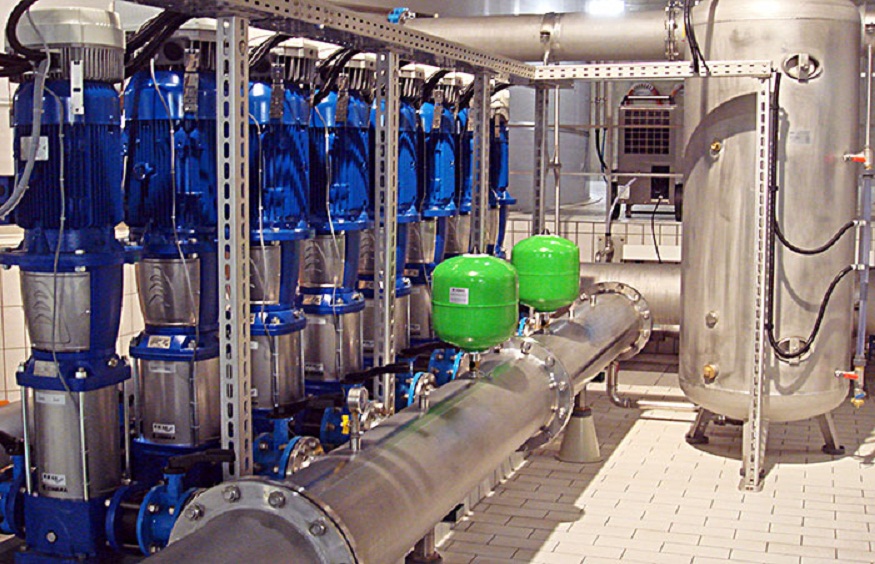In the world of industrial applications, efficient fluid transfer systems are essential to ensure smooth operations. Pumps are at the heart of these systems, making the movement of fluids across various sectors — from oil and gas to food processing — efficient and reliable. Among the most critical types of pumps used for industrial purposes are transport pumps and PC pumps (progressive cavity pumps). Both are used to manage the flow of various types of fluids, ranging from water and chemicals to highly viscous substances like oil.
For industries that rely on the seamless flow of liquids, the quality, design, and efficiency of pumps are vital. In this article, we’ll dive into the importance of these pumps, how they are used in different industries, and what considerations are essential when selecting pumps from oil pump manufacturers or suppliers in other fields.
Understanding Transport Pumps and Their Applications
Transport pumps are specifically designed to transfer fluids efficiently from one location to another within an industrial facility. They are versatile and used in a variety of applications, such as moving oil, water, chemicals, and other fluids. These pumps are essential in industries that require fluid movement on a large scale and are often utilized to transport fluids over both short and long distances.
Key Benefits of Transport Pumps
- Efficiency in Fluid Movement: Transport pumps are engineered to move fluids quickly and efficiently. They minimize downtime and reduce the need for frequent maintenance, which is vital for industries that rely on a constant flow of materials.
- Versatility Across Different Fluids: Transport pumps can handle different types of fluids, including low-viscosity liquids like water and high-viscosity materials such as oils and slurries. This versatility makes them suitable for applications across multiple industries.
- Enhanced Safety: For industries that work with hazardous chemicals, a high-quality transport pump minimizes the risk of leaks and spills, ensuring safety within the facility. Proper containment of hazardous fluids is critical to maintaining a safe work environment and minimizing environmental impacts.
- Cost-Effective Solution: High-quality transport pumps are generally cost-effective, offering low maintenance costs and long-term durability. With the right pump, industrial facilities can save on both operational costs and downtime.
Common Applications of Transport Pumps
- Oil and Gas Industry: Transport pumps are essential for moving crude oil, refined oil, and other petroleum products within facilities or across pipelines. These pumps are critical in maintaining efficient operations in refineries and storage facilities.
- Chemical Processing: In the chemical industry, transport pumps are used to handle a wide range of chemicals, some of which can be hazardous. These pumps help to ensure that chemicals are transferred safely and efficiently from one processing stage to another.
- Water Treatment Facilities: Transport pumps play an essential role in water treatment plants, where they move large quantities of water through various stages of treatment and filtration. They help ensure a steady supply of clean water in communities and industrial plants.
The Unique Role of Progressive Cavity (PC) Pumps
Progressive cavity pumps, or PC pumps, are a unique type of pump that is especially useful for handling thick and viscous fluids. These pumps use a rotor and stator mechanism to move fluids in a continuous, controlled flow. They are widely used in industries where materials with high viscosity, such as sludge, oils, and slurries, need to be transferred.
Advantages of PC Pumps
- Smooth and Consistent Flow: One of the biggest benefits of PC pumps is that they offer a steady and pulse-free flow. This consistency makes them ideal for applications where an even flow rate is critical.
- Capability to Handle High-Viscosity Fluids: PC pumps are particularly effective in handling high-viscosity fluids and materials with solid particles. They are designed to move thick liquids without any significant fluctuations in flow, which is essential for industries that handle oils, slurries, and other dense fluids.
- Durable and Long-Lasting: PC pumps are known for their durability and low maintenance requirements. Because they are designed to work in harsh environments and handle abrasive materials, they often last longer than other types of pumps.
- Low Shear Pumping: PC pumps provide gentle, low-shear pumping, which is important for applications involving delicate fluids or materials that can be damaged by high-shear forces. This is particularly beneficial in industries like food processing and cosmetics, where preserving the fluid’s texture or composition is essential.
Applications of PC Pumps
- Wastewater Treatment: PC pumps are frequently used in wastewater facilities to transport sludge and slurry, as well as other waste materials. Their ability to handle solids and viscous materials without clogging makes them invaluable in this setting.
- Oil and Gas Production: In the oil and gas industry, PC pumps are used to move crude oil and other highly viscous substances. They can withstand the abrasive properties of the oil and the presence of solid particles, making them reliable for oil extraction and processing.
- Food Processing: The food industry often relies on PC pumps to handle products like sauces, syrups, and dough. The gentle pumping action ensures that the texture and quality of these materials remain consistent.
How to Choose the Right Pump from Oil Pump Manufacturers
With so many options available, selecting the right pump for industrial applications can be challenging. Whether you’re choosing a transport pump or a PC pump, working with reputable oil pump manufacturers and considering certain factors can help you make an informed decision.
Key Considerations for Selecting the Right Pump
- Fluid Properties: Understanding the properties of the fluid you’re handling is crucial. Factors like viscosity, abrasiveness, and chemical composition can impact pump performance. For instance, PC pumps are better suited for viscous, solid-laden fluids, while transport pumps are ideal for fluids that need to be moved quickly.
- Flow Rate and Pressure Requirements: Consider the desired flow rate and pressure for your application. Transport pumps are often used for high-flow applications, while PC pumps offer a steady, controlled flow. Understanding the required flow rate and pressure helps in choosing a pump that meets your operational needs.
- Energy Efficiency: Industrial pumps consume a significant amount of energy. Choosing energy-efficient pumps can lead to considerable cost savings in the long run. Look for pumps with efficient motors and designs that reduce power consumption without compromising performance.
- Maintenance and Durability: Pumps that require frequent maintenance can lead to downtime and increased costs. Quality pumps from reputable oil pump manufacturers are designed to be durable and have lower maintenance requirements, ensuring longevity and reliable performance.
- Compatibility with Industry Standards: Ensure that the pump meets relevant industry standards, especially if you’re handling hazardous materials. Reputable manufacturers often produce pumps that adhere to regulatory standards, ensuring safety and reliability.
- Cost of Ownership: Instead of focusing solely on the upfront cost, consider the total cost of ownership, which includes maintenance, energy consumption, and lifespan. A high-quality pump may have a higher initial cost but offer significant savings in the long term.
Benefits of Working with Trusted Oil Pump Manufacturers
Finding the right pump for your application is essential, but choosing a reputable manufacturer is just as important. Reliable manufacturers prioritize quality and ensure their pumps meet industry standards. Here are some benefits of working with reputable oil pump manufacturers:
- Expert Guidance: Experienced manufacturers offer guidance to help you select the right pump based on your specific requirements. They have the expertise to recommend solutions that align with your industry and operational needs.
- Quality Assurance: Reputable manufacturers adhere to high-quality standards in their manufacturing processes, ensuring that the pumps they produce are durable, efficient, and safe.
- Customization Options: In some cases, manufacturers offer custom pump solutions to meet unique requirements. This can be advantageous if your application involves unusual fluid properties or flow rates.
- After-Sales Support: A reputable manufacturer provides reliable after-sales support, including maintenance and repair services, ensuring that your pump continues to operate effectively throughout its lifespan.
Conclusion: The Importance of Choosing the Right Pump for Industrial Applications
In industrial settings, pumps play an essential role in facilitating efficient fluid transfer across different processes. Whether you’re dealing with high-flow applications that require transport pumps or need a steady flow for thick, viscous materials with PC pumps, selecting the right pump is essential to ensuring smooth operations and minimizing costs.
By understanding the unique benefits of each pump type and considering key factors like fluid properties, flow rate, and energy efficiency, industries can make informed decisions. Working with reputable oil pump manufacturers also ensures that you receive quality products that meet industry standards, reducing the likelihood of frequent breakdowns and costly maintenance.
Ultimately, investing in high-quality pumps tailored to your specific needs is a decision that will pay off in the long run. It ensures reliable performance, improves safety, and enhances overall operational efficiency. Whether you’re in the oil and gas sector, food processing, or wastewater management, choosing the right pump and the right manufacturer can make all the difference in optimizing your facility’s performance.




